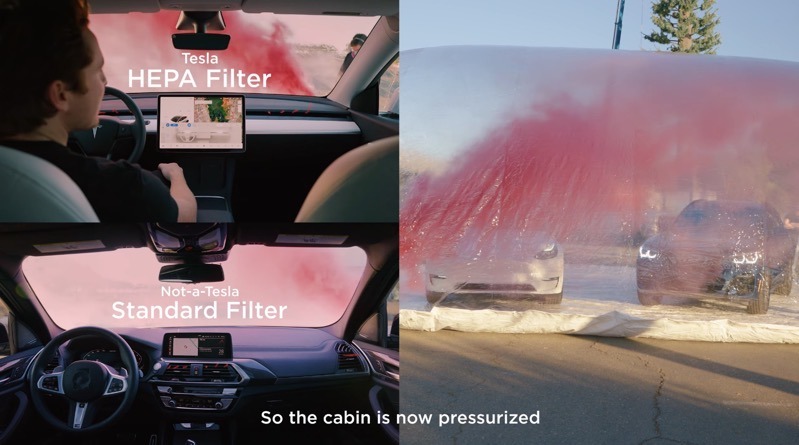
Tesla’s Air Filtration Still Unmatched by Automakers

In the wake of increasing climate change challenges, drivers are now adding a new item to their car safety checklist: advanced air filtration systems. As wildfires rage across countries like Canada, the US, and Greece, the demand for cleaner air inside vehicles has surged.
The Corsi-Rosenthal box, a simple yet effective device developed by Richard Corsi from the University of California Davis and Jim Rosenthal, can be plugged into a car’s cigarette lighter to purify the air. Initially designed during the peak of the Covid-19 pandemic, this apparatus highlights the pressing need for better air quality in vehicles, especially with the rising threat of wildfire smoke, reports Bloomberg.
On average, Americans spend approximately five years of their lives in cars, which are often exposed to a mix of volatile chemicals from plastics, flame retardants, and external pollutants. The addition of wildfire smoke, laden with harmful PM2.5 pollution, exacerbates the situation, leading to various health issues.
Tesla pioneered the move towards cleaner air in cars with its “Bioweapon Defense Mode,” introduced in 2016. This system uses a HEPA filtration mechanism similar to popular household air purifiers. Tesla even claimed that their system could protect users from a military-grade bio attack. The feature is available as standard equipment on the latest Model S, Model X and Model Y vehicles.
However, other major players in the auto industry are now catching up. Mercedes-Benz recently launched an “energizing air control system” with three layers of filtration, designed to trap viruses and neutralize smog. During a test drive of Mercedes’ new EQE SUV, the system impressively maintained an in-cabin air quality index of 23, even when external conditions measured a hazardous 350 due to Canadian wildfire smoke. But this is a paid feature ($450!) upgrade only available on its newest electric cars, and not included for free.
BMW has also entered the fray with its advanced air filtration system, initially designed for highly polluted areas like Indonesia and Beijing. While currently a premium paid feature, the demand for such systems is expected to grow, potentially making them a standard offering in the future.
As the auto industry slowly adapts, third-party manufacturers are stepping in to fill the gap. Numerous aftermarket filters are available on platforms like Amazon, offering quick and efficient air purification solutions for vehicles.
Richard Corsi sums it up aptly, “It’s not rocket science.” As the world grapples with environmental challenges, the quest for cleaner air, even on the move, becomes paramount.
Check out Tesla’s Bioweapon Defense Mode in action below, bringing hospital-grade air to your vehicle cabin at the touch of a button:


